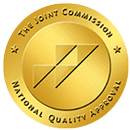Evidence based therapy (EBT) refers to the demonstrated effectiveness of various treatment approaches for substance use disorders. It is called “evidence based” because the practices have been proven to have consistently high success rates that are validated by scientific findings in multiple studies, which are considered to provide the best available evidence that inform clinical practice. It is broken down into two categories: pharmacotherapies and behavioral therapies. This definition is constantly revised as new research development is always underway.
Behavioral Therapies (Psychotherapy)
The primary approach of behavioral therapy is to use incentives to modify behaviors and attitudes related to substance abuse. These result in better stress management, refined life skills, and improved control over responses to environmental stimuli that prompt cravings for drug and alcohol abuse. Behavioral therapies include the following:
- Cognitive-Behavioral Therapy (CBT)
- Dialectical Behavioral Therapy (DBT)
- Contingency Management Interventions
- Process Groups (group therapy)
- Family Group Therapy
An evidence based therapy, CBT is considered the gold standard of psychotherapy (1) for several reasons:
- It is the most researched form of behavioral therapy
- Compared to other forms of psychotherapy, CBT has been shown to be the most effective
- The thoroughly researched CBT theoretical models and mechanisms of change are in line with current paradigms of the human mind and behavior.
Pharmacotherapy (Medication-Assisted Treatment)
In dual diagnosis treatment, pharmacotherapy refers to medication-assisted treatment (MAT) for individuals living with substance use disorders. The Substance Abuse and Behavioral Health Services Administration (SAMHSA) defines MAT as the use of FDA-approved medications in conjunction with evidence based therapy, such as cognitive-behavioral therapy, dialectical behavioral therapy and other forms of psychotherapy. The combined use of MAT and psychotherapy provides a holistic approach to addiction treatment.
At New Method Wellness, our addiction specialists utilize FDA-approved non-narcotic pharmaceutical drugs to treat opioid, tobacco and alcohol addiction, which includes the use of buprenorphine, suboxone, acamprosate, disulfiram, vivitrol injections, and Naltrexone tablets.
Naltrexone tablets
Are ideal for anyone who may risk throwing their sobriety out the window with just one drink. Naltrexone is prescribed by an addiction psychiatrist for relapse prevention and can be taken in the form of a tablet, injection, transdermal patch or implant.
Vivitrol injection
A brand-name intravenous form of naltrexone, Vivitrol injections are administered monthly by a nurse or doctor, and this prescribed medication is part of a closely supervised, medically comprehensive addiction treatment program.
Buprenorphine
In the form of a tablet or through intravenous injection, buprenorphine is a semi-synthetic opioid that suppresses opioid withdrawal symptoms, stifles the effects of other opioids, and decreases cravings.
Suboxone
This prescription medication is a combination of buprenorphine and naxolone, and it is used to curb heroin cravings.
Acamprosate
Is a prescribed medication that stabilizes chemical imbalances in the brain. It can have side effects such as cardiac arrhythmia, hypertension, headaches, insomnia, diarrhea, and impotence. In conjunction with counseling, addiction psychiatrists prescribe acamprosate to treat alcohol dependence.
The Movement Toward Evidence Based Therapy in Addiction Treatment
Studies have revealed that the implementation of evidence based therapy (EBT) for the treatment of co-occurring medical and psychiatric disorders have shown to be cogent and cost effective (2) and the movement for EBT (3) has made its way to the addiction treatment industry, which has been imbued with evidence based practices due to an increasing number of federal and statewide initiatives.(4) Support for evidence based therapy used in service delivery settings such as dual diagnosis treatment centers can be viewed on SAMHSA’s website.
New Method Wellness, one of the nation’s leading dual diagnosis treatment centers handpicked by Dr. Phil, offers a wide selection of evidence based therapies, including medication assisted treatment and holistic therapy programs.
If you are looking for help with substance abuse addiction, call 866.951.1824 today!
References
recommendations for public policy. Health policy (Amsterdam, Netherlands), 97(2-3), 93-104


